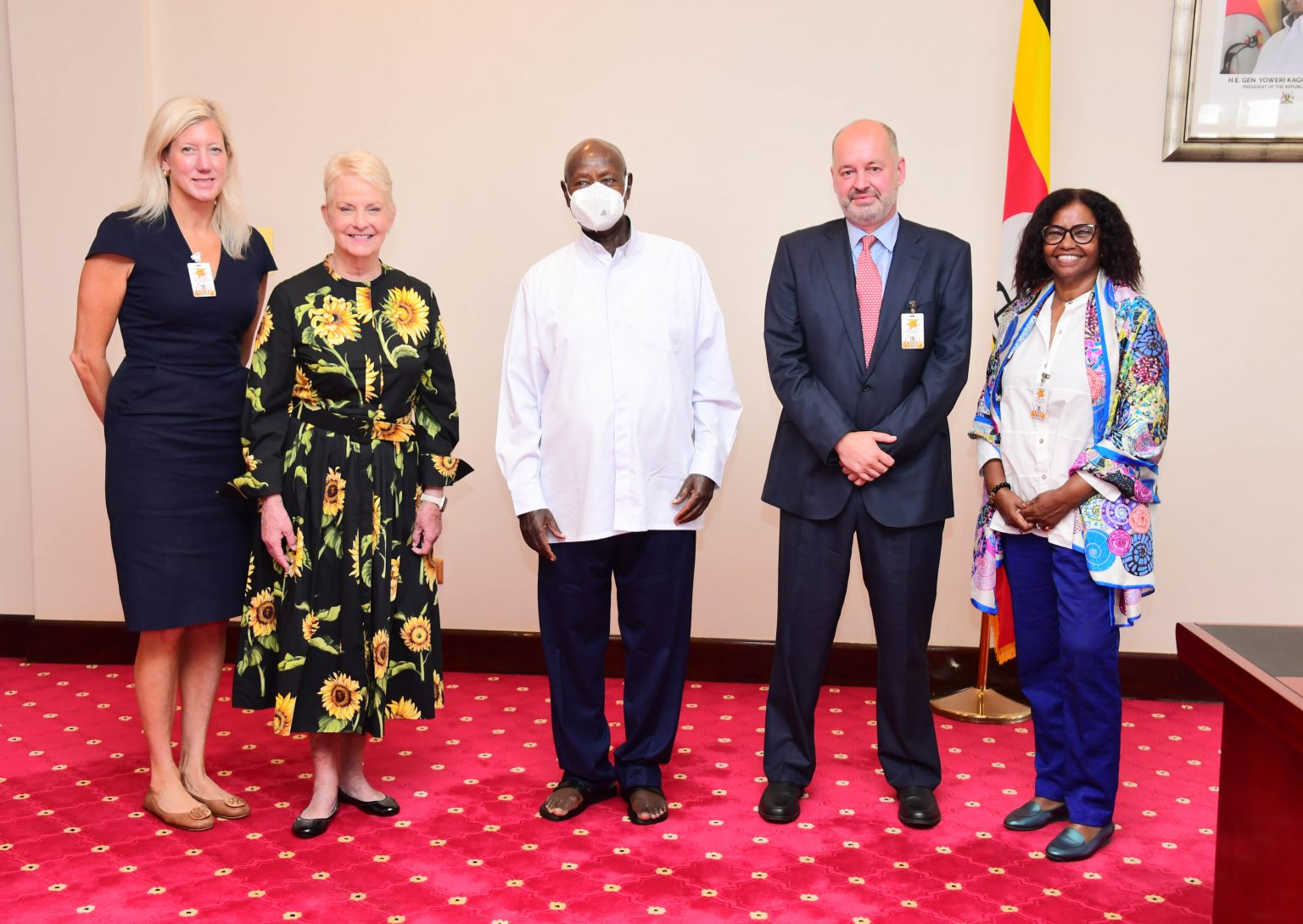As global refugee numbers surge, Uganda is championing a progressive approach that blends humanitarian support with long-term sustainability. At the heart of this strategy is President Yoweri Kaguta Museveni’s vision to shift from emergency food aid to organized, agriculture-driven self-reliance within refugee settlements.
During a high-level meeting with World Food Programme (WFP) officials at State House Entebbe, President Museveni outlined a transformative plan to reimagine refugee settlements as hubs of economic productivity.
“Uganda has always welcomed our displaced brothers and sisters, but we must now move beyond emergency response,” Museveni asserted.
Home to over 1.8 million refugees, Uganda is one of the world’s largest refugee-hosting nations. However, the President highlighted a fundamental inefficiency in the current model: scattered housing that consumes extensive land without yielding productivity.
To address this, Museveni proposed reorganizing settlements into compact, village-style clusters—akin to “campuses”—to optimize land use, promote communal farming, and enable infrastructure development such as irrigation, markets, and transport networks.
“The challenge is that most refugee settlements are spread out inefficiently. This hinders large-scale farming and economic activity,” he explained.
Citing Nakivale Settlement, which spans 71 square miles, Museveni emphasized the untapped agricultural potential within refugee zones. With proper planning and infrastructure, these areas could produce enough food to support both residents and national food security, even generating export potential.
“The land is there. What we need is better planning and infrastructure so refugees can grow their own food, become economically active, and reduce their reliance on aid,” he said.
This vision aligns with Museveni’s broader economic agenda—emphasizing value addition, organized land use, and the integration of refugees into local economies. It reflects a Pan-African ideology that sees refugees not as foreigners, but as part of a shared regional identity.
“These people are not foreigners in the real sense. Our borders are artificial, drawn by colonialists,” he added.
The WFP leadership expressed strong support for the initiative. Executive Director Cindy McCain praised Uganda’s leadership in refugee management and its innovative model that bridges humanitarian aid with development.
“The land here is large and fertile. As WFP, we are confident in your proposal to create agricultural opportunities in these areas,” she said.
McCain commended Uganda’s compassion and boldness, pledging to advocate for a shift in donor funding towards long-term, empowerment-driven solutions.
“The message we are taking back to both large and small donors is that Uganda is working to make these communities more self-reliant and self-sustaining.”
WFP officials also applauded Uganda’s progressive refugee policy, which allows displaced people to live, work, and farm—privileges often denied elsewhere. Marcus Prior, WFP’s Uganda Country Director, highlighted the efficiency and innovation of the Uganda-based team, despite limited resources.
“We have developed innovative solutions to increase efficiency. The team in Uganda is doing exceptionally well,” he noted.
He also acknowledged strong collaboration with the Office of the Prime Minister, under Hon. Eng. Hilary Onek, as central to WFP’s success on the ground.
“We commend you for giving refugees the chance to rebuild their lives. WFP will continue to pursue sustainable pathways to ensure they live with dignity.”
Museveni’s call for restructured settlements and agriculture-based self-reliance marks a paradigm shift in refugee policy—viewing displacement not solely as a crisis but as an opportunity for economic inclusion benefiting both refugees and host communities.
This development-focused model challenges short-term donor dependency and encourages investment in land use planning, skills training, and market integration.
WFP’s endorsement could play a pivotal role in mobilizing resources, shifting donor perspectives, and influencing global best practices on refugee self-sufficiency.
With strong backing, Museveni’s proposals signal an evolution in Uganda’s refugee strategy—from hospitality to productivity. If successful, this model could serve as a blueprint for developing nations, reframing displaced populations not as passive aid recipients but as active contributors to national growth.
“We truly value our partnership with Uganda. We must support efforts that empower people rather than just pulling back aid,” McCain affirmed.
In a world grappling with protracted displacement, Uganda is offering a dignified, sustainable, and inclusive path forward—one that other nations and agencies may well be inspired to follow.


